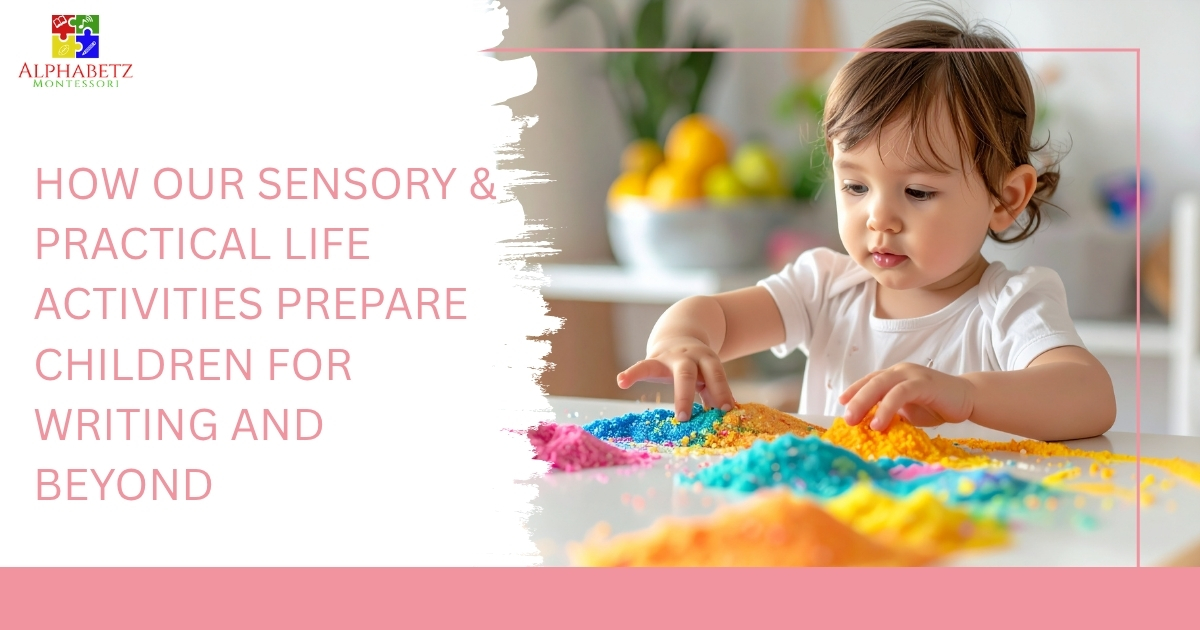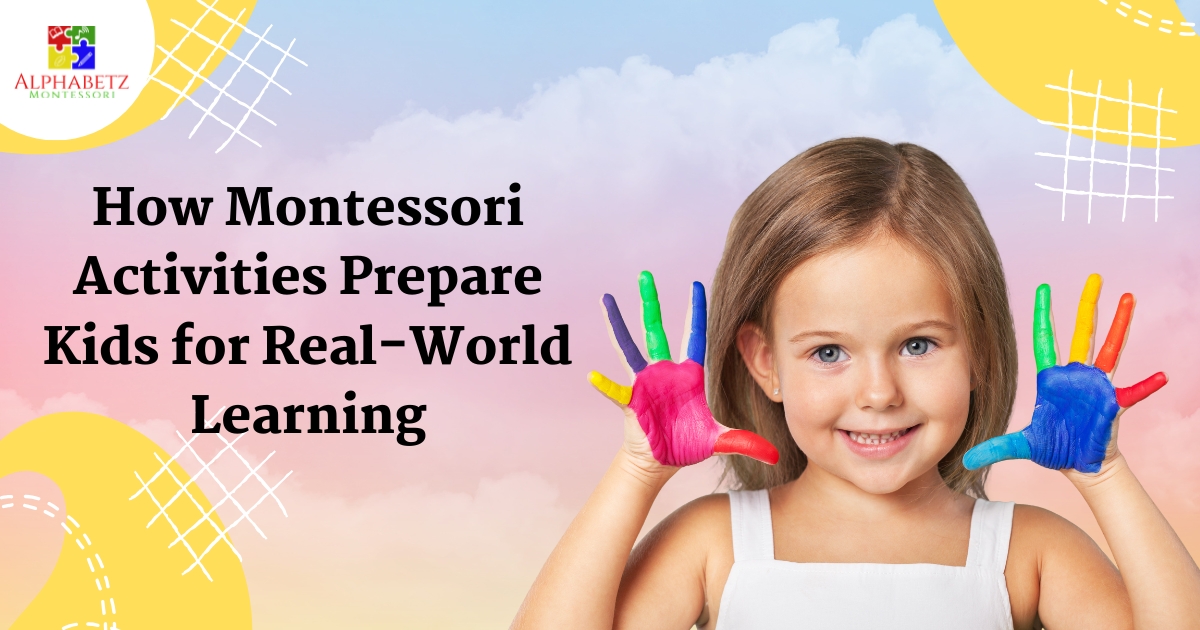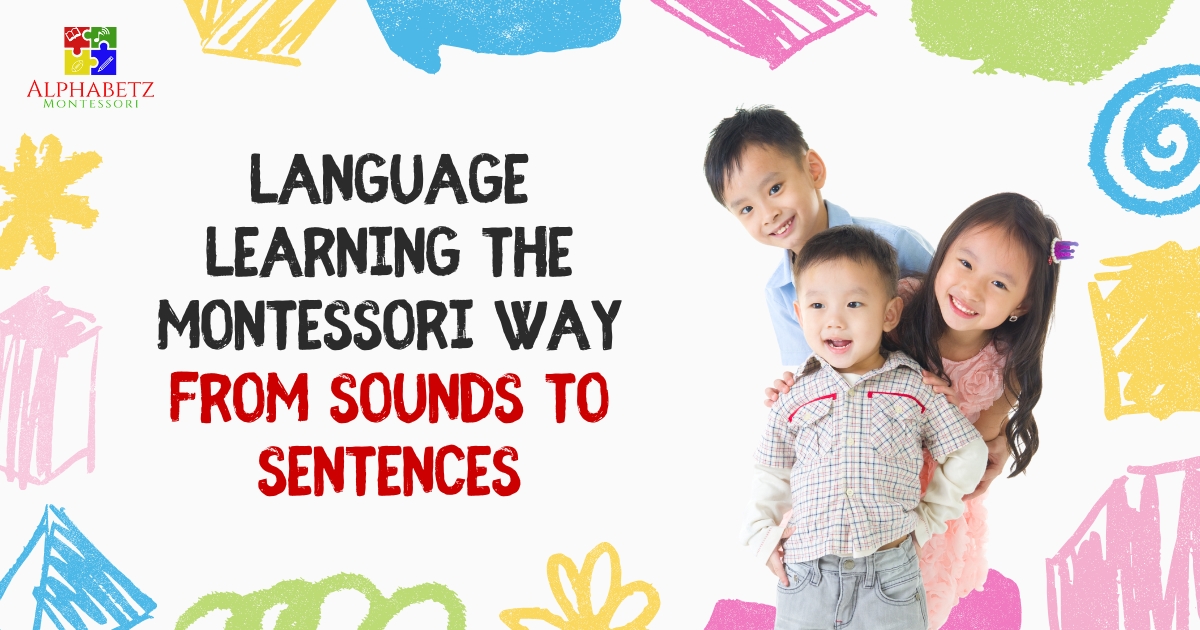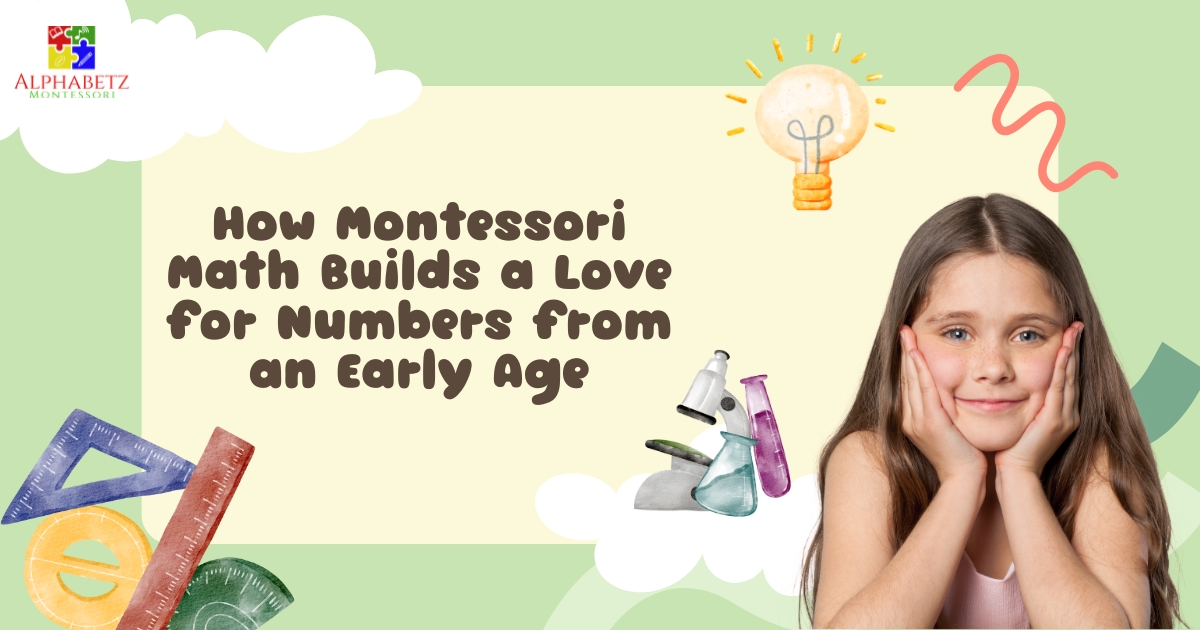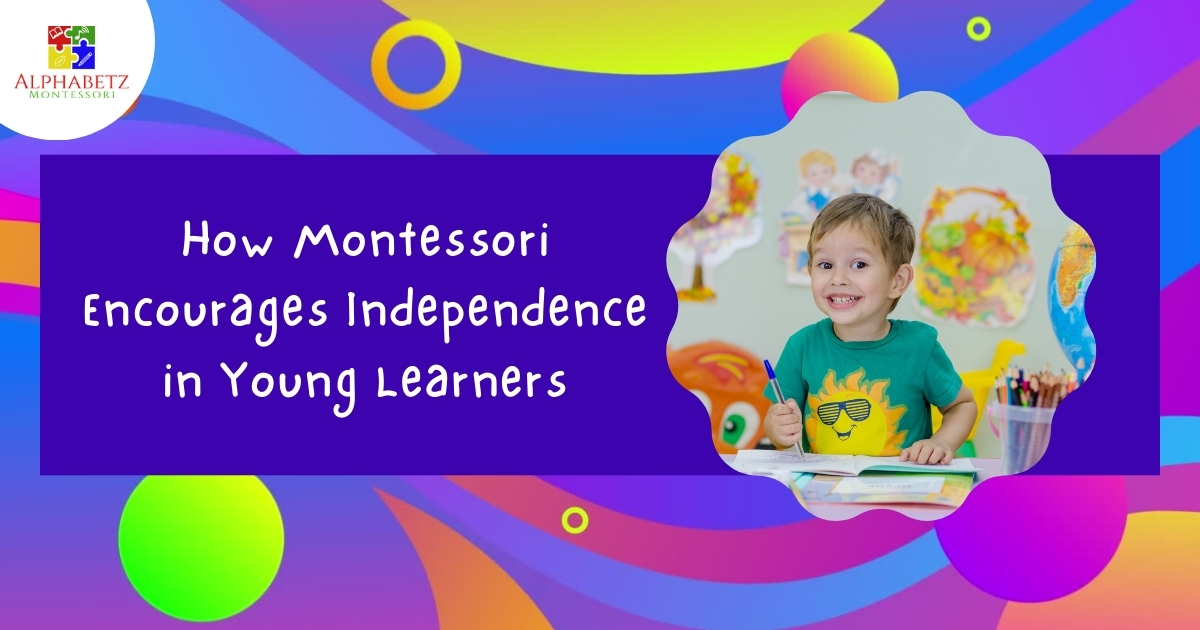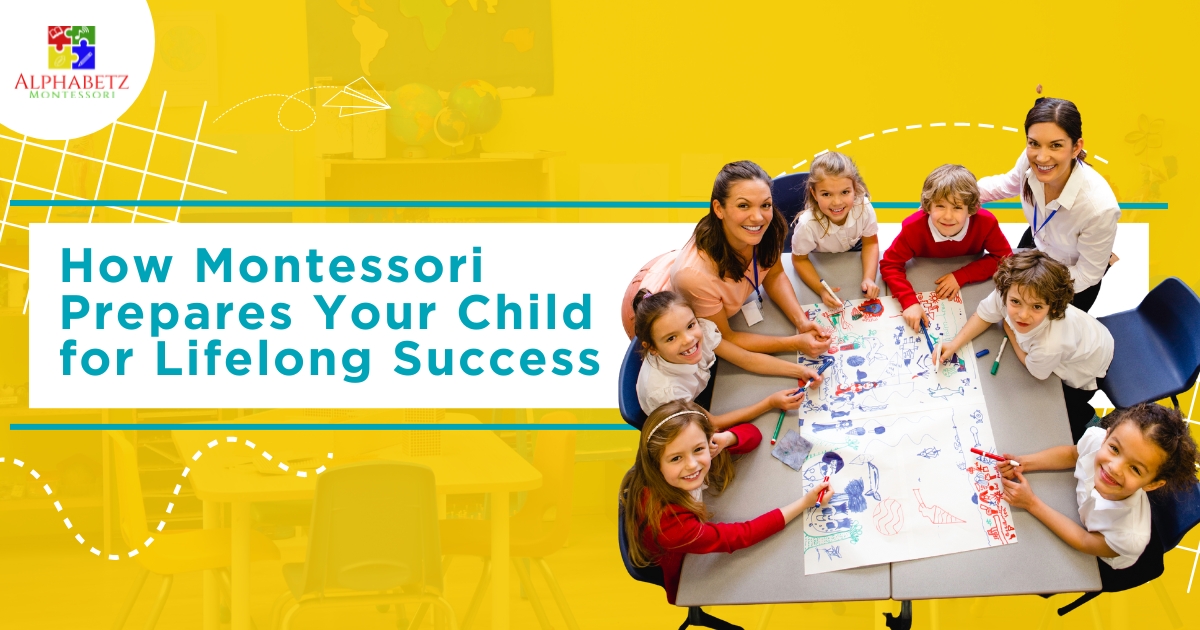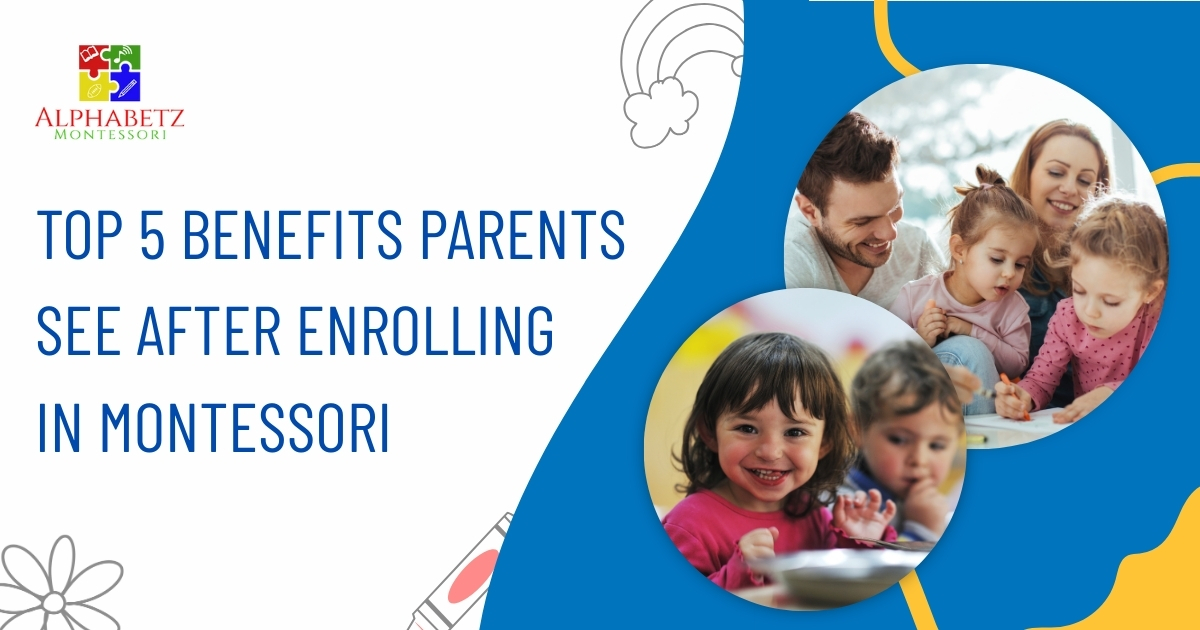How Alphabetz Montessori Helps Children Explore, Create & Grow
At Alphabetz Montessori, learning is more than a classroom experience It’s an exciting journey where children discover the world through exploration, creativity, and hands-on activities. Rooted in the Montessori philosophy, our approach empowers each child to learn at their own pace, build confidence, and develop a deep love for learning. In a world that is constantly evolving, we believe that nurturing independent thinkers and curious explorers is the foundation for lifelong success. A Learning Environment…



